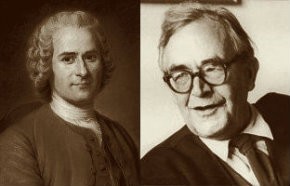Truth is proportional: The limits of what we can know

The late Johan Christian Becker, for many years professor of New Testament at Princeton Theological Seminary, was a riveting classroom lecturer, especially when the subject was the apostle Paul. Paul was his specialty, and Becker had famously passionate convictions about the apostle. By the end of a lecture, Becker would have often ascended to a paroxysm of academic passion. He paced the dais in his classroom, his Dutch accent thickening as he became increasingly animated by some question of Pauline scholarship. He was convinced of his convictions and often rhetorically lacerated scholars who stubbornly held to what Becker considered patently absurd notions. He waved his arms and jabbed his index finger this way and that; his voice rose; his face reddened.
More than once this performance would be interrupted by the bell. I recall several occasions when the sound of the bell drew Becker back to earth, and he looked out at the class and said in an even voice, "Then again, this may be all wrong." Actually, he usually made that confession in scatological language, as in "This may all be bull." His point was clear. "I am right about this, but . . ." Becker was not saying that truth is subjective or relative. He was simply admitting the limits of his mortal ability to know truth perfectly and completely— about Paul, to be sure, but more so about God.
Many Christians today are attending with renewed enthusiasm to the drawing of boundaries around the perimeters of Christian conviction: "What, precisely, must you absolutely believe (or not believe) to be a 'real' Christian?" In my own Presbyterian world we are circling around the definition (or lack thereof) of the "essential tenets" of belief. Those in the Presbyterian Church (U.S.A.) who would be ordained as ministers, elders and deacons are asked to "sincerely receive and adopt the essential tenets of the Reformed faith as expressed in the confessions of our church."




